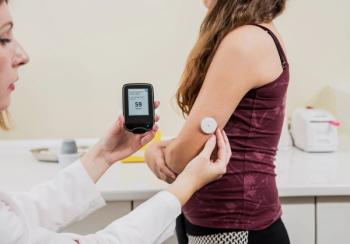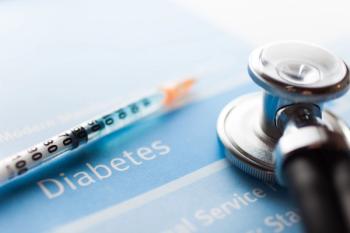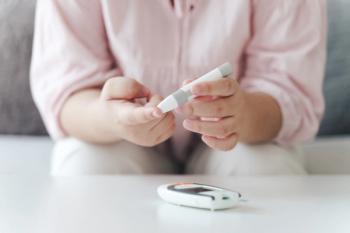
Four posters presented at ENDO 2024 explored the interplay of hormones and other factors in postmenopausal women.

Four posters presented at ENDO 2024 explored the interplay of hormones and other factors in postmenopausal women.

Two posters presented at ENDO 2024 assessed semaglutide’s impact on taste sensitivity and tirzepatide’s role in body weight reduction.

Three posters presented at ENDO 2024 focused on women’s health.

CDC researchers reported on the improvements and inaccuracies of assays within the Vitamin D Standardization-Certification Program.

In an abstract presented at ENDO 2024, researchers addressed practitioners’ current knowledge of CGM and their experience prescribing in low-income communities.

HbA1c levels decreased significantly after an average of 154 days in patients who used a continuous glucose monitor.

Four poster presented at ENDO 2024 examined the current landscape of diabetes.

Posters presented at ENDO 2024 investigated excessive weight gain in breast cancer survivors and how high insulin levels impact outcomes for Black women with an aggressive form of the disease.

In an abstract presented at the Endocrine Society’s ENDO 2024 annual meeting in Boston, Massachusetts, researchers addressed the association between social vulnerability and glycemic control in patients with diabetes.

Research presented at ENDO 2024 found that glucagon-like peptide-1 receptor agonists had a lower acute pancreatitis recurrence risk than SGLT2i, DPP4i, and no medication.

In an abstract presented at the Endocrine Society’s ENDO 2024 annual meeting in Boston, Massachusetts, researchers explored access to GLP-1s for teenagers with and without type 2 diabetes.

While elevated BMI at baseline was not associated with increased cardiovascular risk, cumulative excess BMI was associated with an increased risk in people under 50.

Higher serum testosterone concentration was not associated with a reduced risk of developing type 2 diabetes in men older than 65.

Research presented at ENDO 2024 found that environmental stress increased the likelihood of earlier alcohol, nicotine and cannabis use in females and traumatic events increased the likelihood in males.